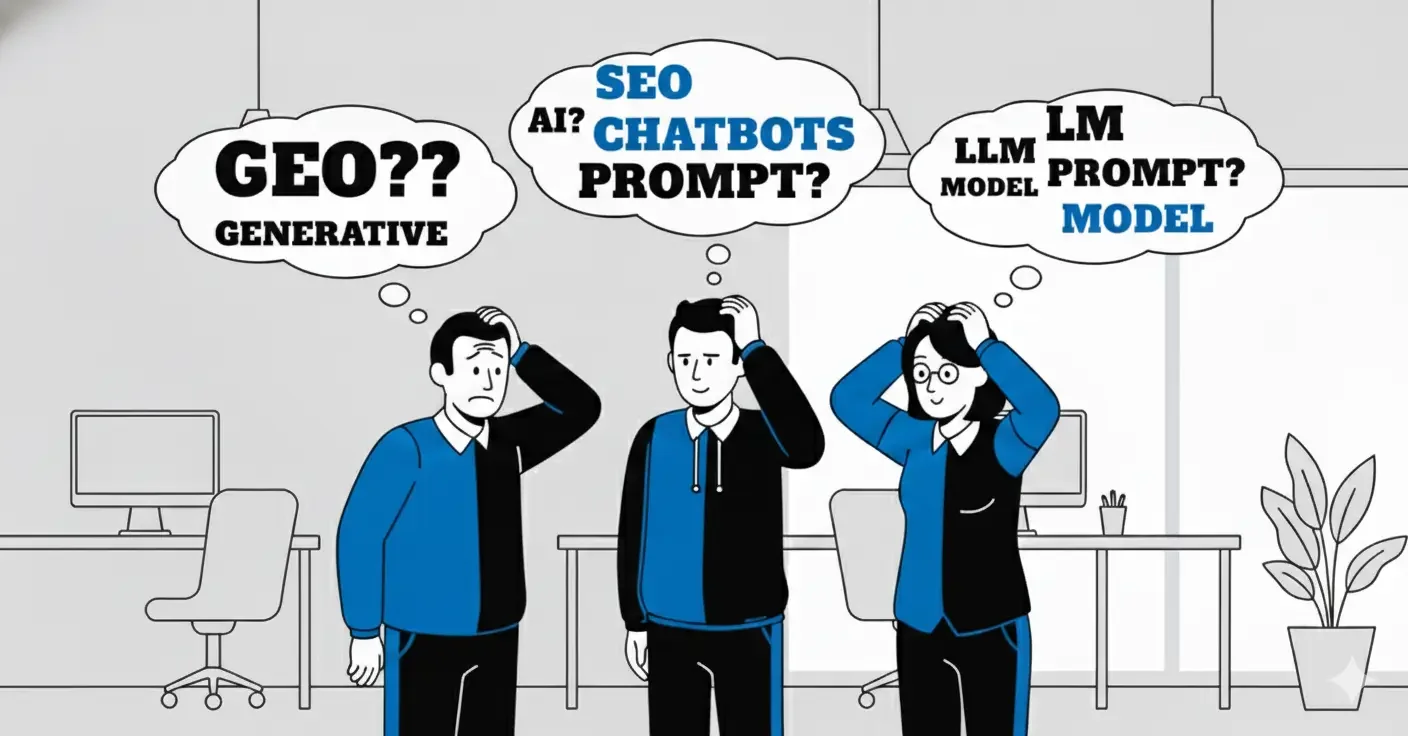GEO? But, we just got good with our SEO…
GEO? What is GEO? Is it different than SEO?
Alright, so a bunch of you have been asking about this new "GEO" thing. We all spent the last 15 years getting really good at SEO (Search Engine Optimization), and now it feels like the goalposts are moving.
They are. But it's not complicated. It's just a different game.
As a marketer, I look at it this way: SEO was a battle for visibility. GEO is a battle for authority.
Here’s the simple breakdown.
SEO: The Game We Mastered
Think of SEO like trying to get your store listed at the top of the mall directory.
The Goal: To rank #1 (or on the first page) in a list of blue links.
The User's Job: The user types in "best running shoes," scans the list, and chooses which link to click.
How We Won: We used the right keywords ("best running shoes"), got backlinks (other sites "voting" for us), and made sure our site was fast and easy to read.
The Win: The user clicks our link and lands on our website, where we control the entire experience.
It was about winning the click.
GEO: The New Game We Need to Learn
Think of GEO (Generative Engine Optimization) like convincing the hotel concierge to recommend your restaurant.
The Goal: To be the source that the AI (like ChatGPT, Gemini, or Claude) trusts and uses to formulate its single, synthesized answer.
The User's Job: The user asks the AI, "What are the best running shoes for a beginner with flat feet?" The AI thinks for a second, pulls info from 3-4 trusted sources, and gives the user a direct paragraph answer.
The Problem: The user might get their answer and never click a link. They might never even see your website.
The Win: The AI mentions your brand or cites your website as the source of truth (e.g., "According to Your Running Store, the best shoe is...").
It's about winning the answer. SEO gave us a lot of options to sort through and then make a judgment call. AI responses often make that judgment call for us.
And people are listening.
So, What's the Business Strategy? (How to Win at GEO)
This is the part that matters for your marketing. You can't just "stuff keywords" and win anymore. The AI is too intelligent for that. It's looking for proof.
Here's your new playbook:
Stop Writing "Fluff": The 500-word blog post that kind of answers a question is dead. Your content now has to be the definitive, factual, and most helpful answer on the internet for that topic. If it's not, the AI will ignore it in favor of someone who did it better.
Think in Questions & Answers: The best way to get into the answer is to structure your content like an answer. Build out massive, detailed FAQ pages for your products or services. Answer every single "what if," "how to," and "what's the difference" you can think of. AI loves this format.
Prove You're a Real Expert: Your "About Us" page just became one of your most important marketing assets. The AI is actively looking for signals of E-E-A-T (Experience, Expertise, Authoritativeness, and Trustworthiness). Show off your team, credentials, industry awards, and customer reviews. This proves to the AI that you're a real, trustworthy entity and not just a content farm.
Get Your Data in Order (Structured Data): This is the "technical" part, but it's simple. It's like adding "nutrition labels" (called Schema) to your website's code. It invisibly tells the AI, "This is a product," "This is the price," "This is a review," "This is an FAQ." The easier you make it for the AI to read, the more likely it is to use your info.
The big takeaway: Don't panic. The good news is that everything that is good for GEO is also good for SEO.
By focusing on being the absolute, most trustworthy expert in your field, you end up winning both games.

